We use them daily to wipe hands, dry dishes, clean up spills, and even grab hot pots and pans. These versatile fabric pieces are indeed the unsung heroes of our kitchens. But have you ever considered how to properly care for them to ensure they last as long as possible? Just like any other tool in your culinary arsenal, kitchen towels require attention to keep them in top shape. Neglecting their care can lead to dingy, smelly towels that harbour bacteria and must be replaced more often.
This blog post will discuss tips and tricks to make these essential kitchen companions last longer and perform better. After all, a well-maintained kitchen towel is more hygienic and more enjoyable to use.
Choosing the Right Kitchen Towels: The Foundation of Good Care
Before we dive into the specifics of caring for your kitchen towels, let's talk about choosing the right ones in the first place. The type of material your towels are made from plays a significant role in their longevity and performance. Here are some popular options:
- Cotton: A classic choice known for its absorbency and durability. Opt for thicker, higher-quality cotton towels that can withstand frequent washing. Terry cloth, a woven cotton with loops, is exceptionally absorbent and great for drying dishes. However, it can also be prone to snagging and pilling.
- Linen: Linen towels are known for their quick-drying properties and natural antibacterial qualities. They may feel a bit rough at first but soften with use. Linen is also lint-free, ideal for drying glassware and polishing surfaces. However, it may not be as absorbent as some other materials.
- Microfiber: These towels are incredibly absorbent and excellent at cleaning up messes. They're also quick-drying and less likely to harbour bacteria. However, they might not be the best choice for drying dishes as they can leave streaks and may not be as gentle on delicate surfaces.
- Blends: You can also find kitchen towels made from blends of different materials, such as cotton linen or bamboo cotton. These blends often aim to combine the best qualities of each material, offering a balance of absorbency, durability, and quick-drying capabilities.
Consider your specific needs and preferences when choosing kitchen towels. If absorbance is your top priority, terry cloth or microfiber might be good options. Linen could be the way to go if you prefer a lint-free towel for polishing. And if you want a towel that's both absorbent and quick-drying, a blend might be the perfect compromise.
No matter what material you choose, investing in high-quality towels that can withstand regular use and washing is important and essential. Look for towels with tight weaves and reinforced edges to prevent fraying. Remember, a well-chosen kitchen towel is a valuable investment that will serve you well for years.
Proper Washing Techniques: Keeping Your Towels Fresh and Hygienic
Frequent washing is essential to keeping your kitchen towels fresh and bacteria-free. Aim to wash them at least every other day or even daily if you use them heavily. Here are some tips for proper washing:
- Separate from other laundry: Wash kitchen towels separately from other clothes to prevent cross-contamination. Kitchen towels often harbour food particles and bacteria you wouldn't want to be transferred to your garments.
- Hot water: Use hot water to wash kitchen towels and effectively kill germs and bacteria. Check the care label on your towels to ensure they can handle hot water.
- Suitable detergent: Choose a detergent that's tough on stains and grease but gentle on fabrics. Avoid using bleach on coloured towels, as it can fade the colours.
- Vinegar or baking soda: Adding white vinegar or baking soda to the wash cycle can help remove odours, brighten whites, and soften towels. Add about half a cup of vinegar or a quarter cup of baking soda to the washer along with your detergent.
- Proper loading: Don't overload the washer. Leave enough space for the towels to move freely, ensuring they get thoroughly cleaned.
Drying and Storing Kitchen Towels: The Final Steps for Longevity
How you dry and store your kitchen towels can significantly impact their lifespan. Here's what you need to know:
- Air-drying is best: Whenever possible, air-dry your kitchen towels. This method is gentler on the fibres, preventing shrinkage and damage that can occur in a dryer. It also saves energy and is greener.
- Clothesline or drying rack: Hang your towels on a clothesline outdoors or use a drying rack indoors. Ensure they are spread out for proper air circulation and faster drying.
- Avoid piling damp towels: Never leave wet towels in a pile, as this can create a breeding ground for bacteria and mould. Make sure they are scorched before storing them.
- Store in a clean, dry place: Store your kitchen towels in a clean and dry drawer or cabinet. Avoid storing them in humid areas near the sink, which can encourage mildew growth.
Dealing with Stains and Odours: Keeping Your Towels Looking and Smelling Their Best
Even with the best care, kitchen towels are bound to encounter stains and odours occasionally. But don't worry; there are simple and effective ways to tackle these issues:
- Treat stains promptly: The sooner you address a stain, the easier it will be to remove. Blot the stain with a clean cloth or paper towel to absorb any excess liquid.
- Pre-treating stains: Pre-treat stains with a stain remover or baking soda paste and water before washing. Apply the paste to the spot, let it sit for a few minutes, then rub it gently before washing.
- Natural stain removers: Try using natural stain removers like lemon juice or white vinegar for tough stains. Apply the juice or vinegar to the stain, let it sit for a while, then wash as usual.
- Removing odours: If your towels have a musty smell, soak them in white vinegar and water before washing. Add a few drops of essential oil to the wash cycle for a fresh scent.
Additional Tips for Making Kitchen Towels Last Longer: Going the Extra Mile
While the essential care tips we've covered will go a long way in preserving your kitchen towels, here are some extra measures you can take to maximise their lifespan:
- Rotate your towels: Have multiple kitchen towels and rotate them regularly. This prevents overuse of any single towel and gives them time to rest and air out between washes.
- Avoid harsh chemicals: Stick to gentle detergents and avoid using bleach or fabric softeners. These chemicals can weaken fibres and fade colours over time.
- Don't use fabric softener: Fabric softeners can leave a residue on towels that reduces their absorbency. Instead, use vinegar or baking soda in the wash cycle for softness and freshness.
- Replace when worn: When your towels show signs of wear and tear, such as thinning fabric, holes, or frayed edges, it's time to replace them. Holding onto old, worn-out towels can compromise their hygiene and functionality.
- Hang them to dry immediately: After using a towel, hang them up to dry instead of leaving them crumpled on the counter. This helps prevent bacteria growth and keeps your towels smelling fresh.
In conclusion, with extra care and attention, your kitchen towels can go from mere workhorses to cherished allies in your culinary adventures. By choosing suitable materials, washing them properly, drying and storing them thoughtfully, tackling stains and odours effectively, and implementing a few bonus tips, you can significantly extend the lifespan of your kitchen towels.
This will save you money in the long run and ensure that you always have clean, fresh, and absorbent towels on hand for all your kitchen needs. So, give your kitchen towels the care they deserve, and they'll reward you with years of faithful service.
Ready to transform your bathroom into a spa-like retreat with the finest towels? Explore our range of luxurious, soft, and durable hotel-quality towels.







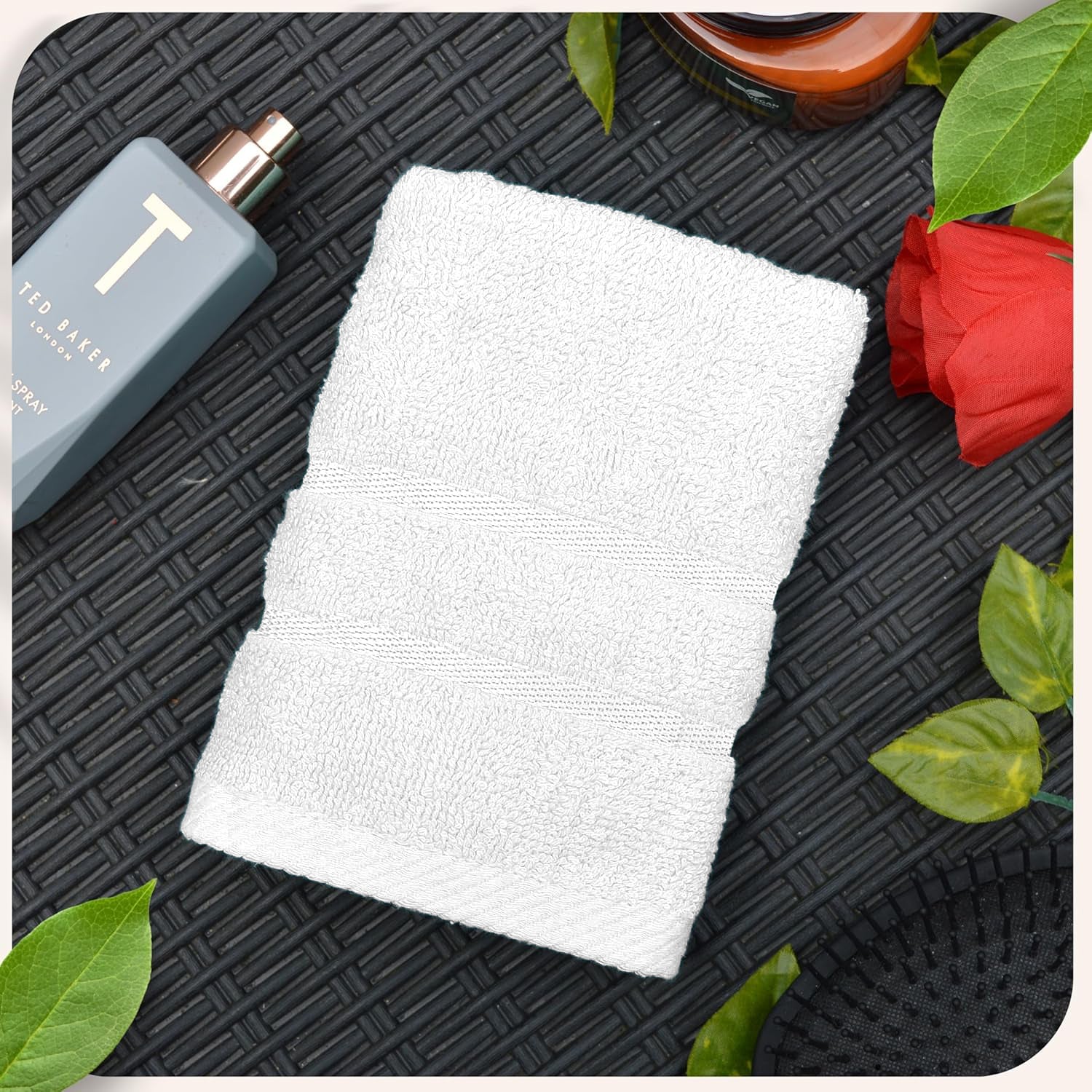
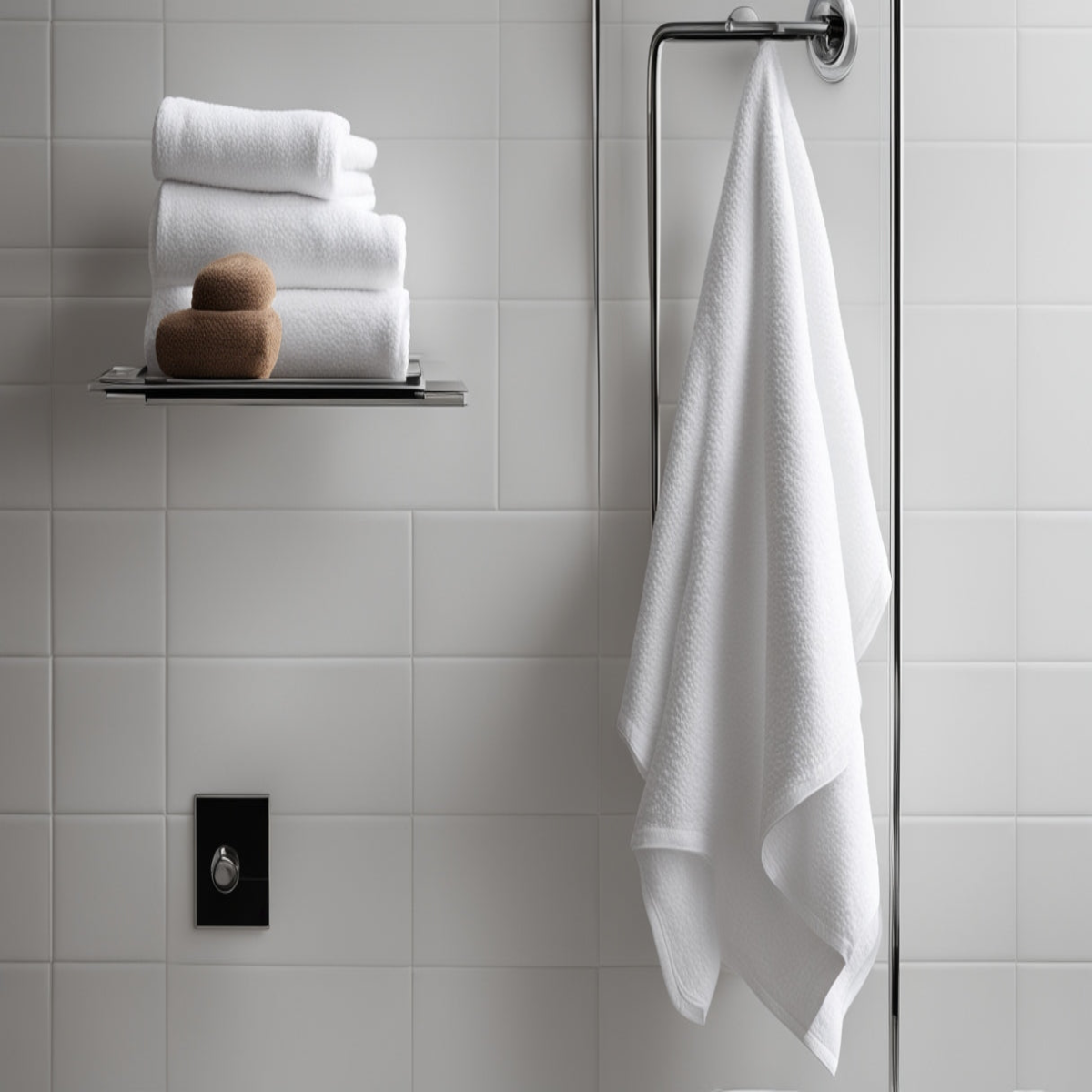
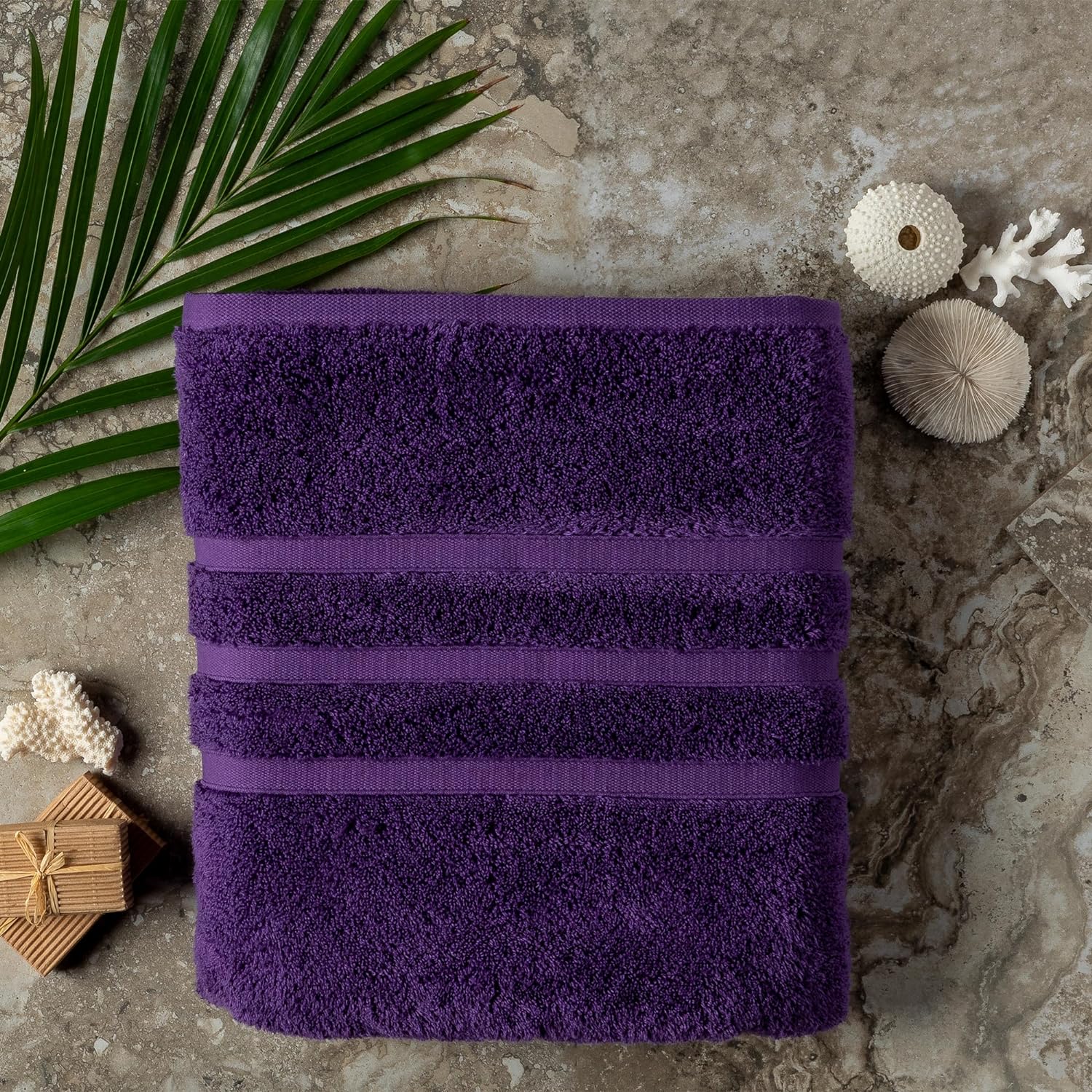

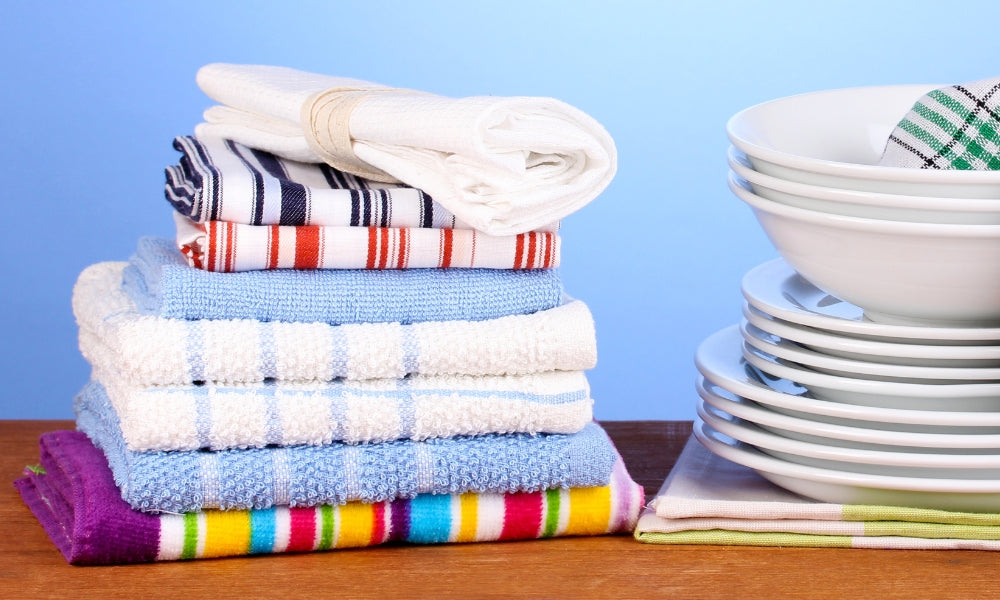
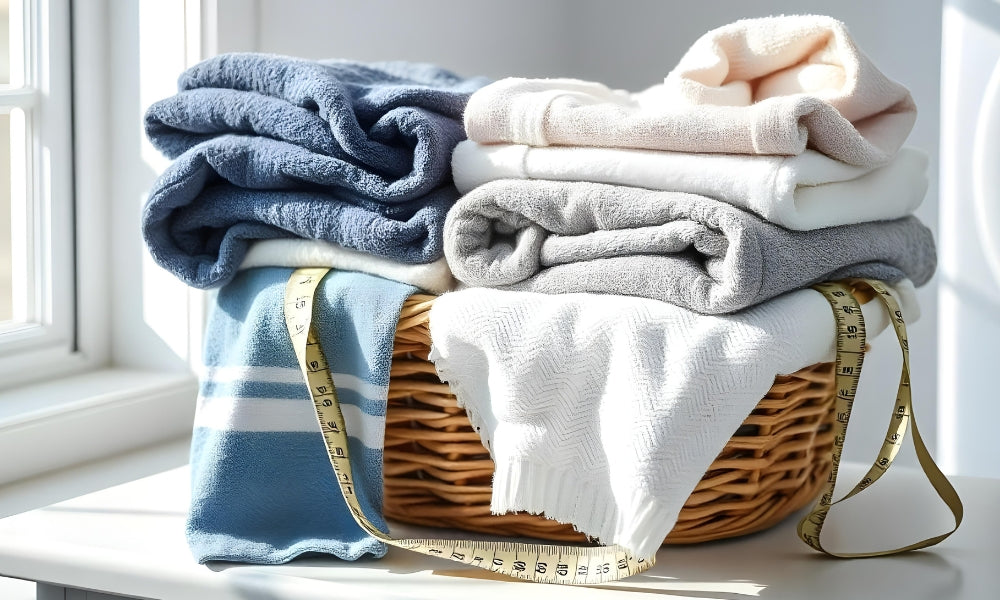
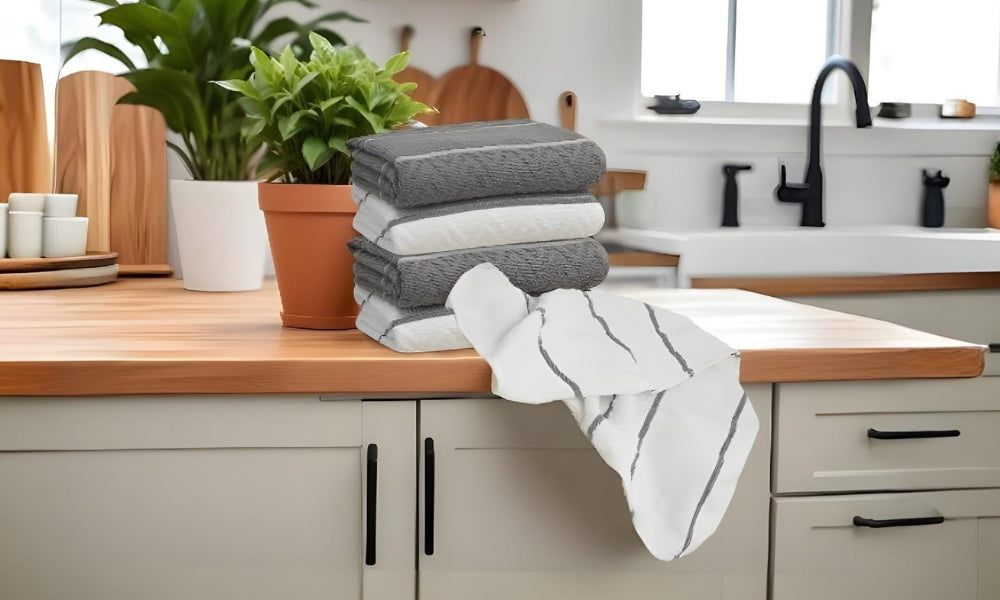
Leave a comment
This site is protected by hCaptcha and the hCaptcha Privacy Policy and Terms of Service apply.